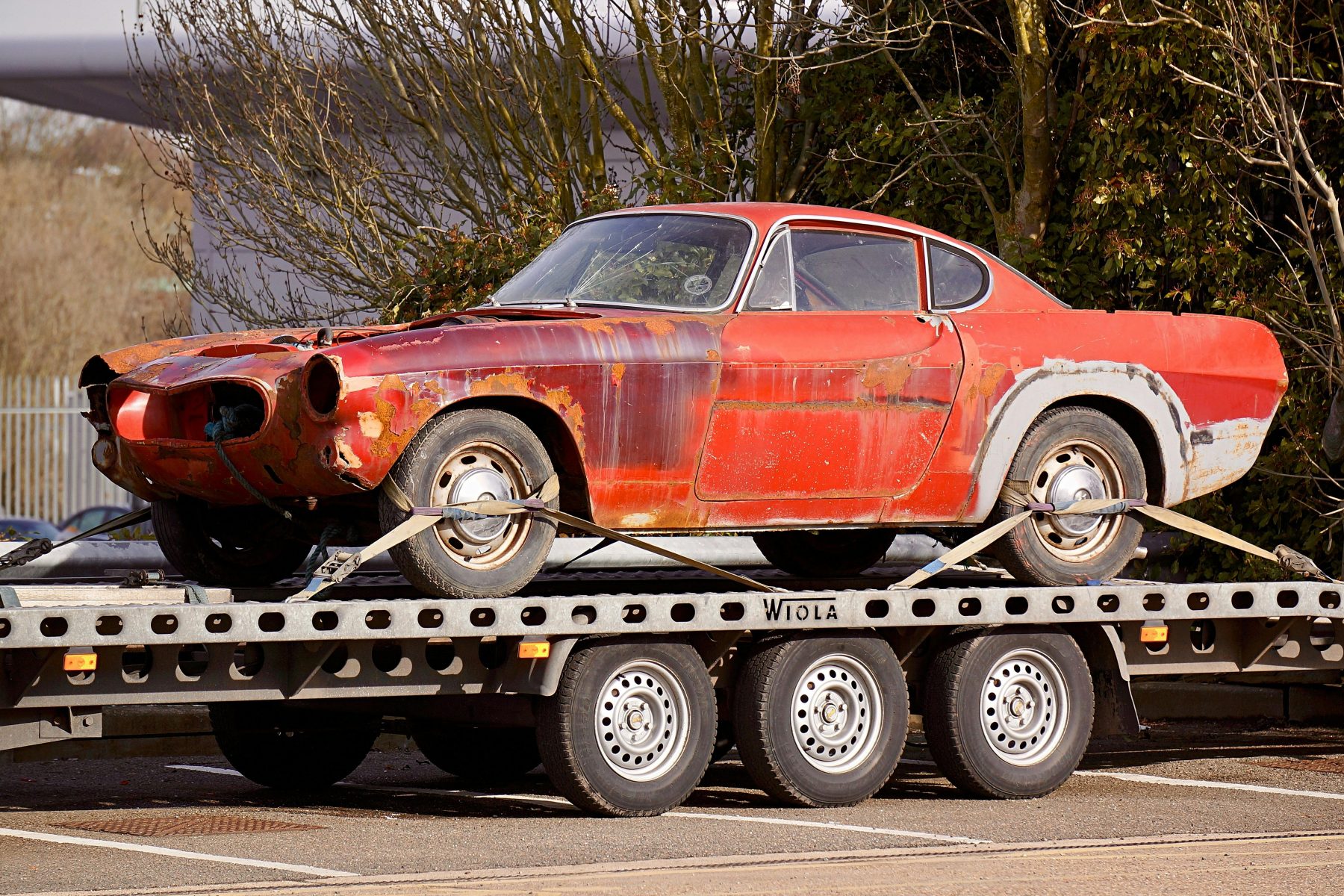Car trouble can strike at any time. When you’re stranded on the side of the road, a 24-hour towing service can be a lifesaver. These services are ready to help day or night, rain or shine.
A 24-hour towing service can tow your vehicle to a safe location or repair shop, no matter when you need help. You don’t have to wait until morning if your car breaks down at 2 AM. This peace of mind is priceless for many drivers.
Towing companies offer more than just tows. They can help with flat tires, jump-starts, and fuel delivery. Some even provide locksmith services if you’re locked out of your car. Knowing a reliable 24 hour towing service can make dealing with car problems much less stressful. In addition you should be aware that there are different types of towing services available depending on your needs.
Understanding 24 Hour Towing Services
24 hour towing services are always ready to help when your car breaks down. These services operate around the clock, every day of the year. They come to your rescue when you’re stranded on the road.
Tow trucks can move your vehicle to a safe location. They take it to a repair shop or your home. The tow truck drivers are trained to handle different types of vehicles.
Here are some common reasons people need towing:
- Engine failure
- Flat tires
- Accidents
- Running out of fuel
- Dead battery
When you call for a tow, give clear details about your location. Describe your car and the problem you’re having. This helps the tow company send the right equipment.
Most towing services offer more than just towing. They can:
- Jump-start your battery
- Change a flat tire
- Bring you fuel
- Unlock your car if you’re locked out
Towing costs vary based on distance and type of service. It’s a good idea to ask about fees when you call. Some car insurance plans cover towing, so check your policy.
Remember to stay safe while waiting for the tow truck. Turn on your hazard lights and stay in your car if possible. If you must exit, do so on the side away from traffic.
Benefits of 24/7 Towing Availability
Round-the-clock towing gives you help when you need it most. It keeps you safe and gets you back on the road fast, no matter when trouble strikes.
Emergency Assistance
24/7 towing comes to your rescue any time, day or night. Your car could break down at 3 AM on a lonely road. With all-hours service, help is just a phone call away.
Tow trucks can reach you quickly, even in the middle of the night. This fast response keeps you from being stranded in unsafe spots.
Some common emergencies that 24/7 towing handles:
- Engine failures
- Flat tires
- Dead batteries
- Accidents
- Running out of gas
No matter the issue, you can count on help arriving soon.
Roadside Support
Beyond just towing, many 24/7 services offer roadside help. This can get you moving again without a full tow.
Common roadside support includes:
- Jump-starting dead batteries
- Changing flat tires
- Bringing fuel if you run out
- Unlocking cars when keys are locked inside
These quick fixes can save you time and money. You might avoid a tow and get back on your way faster.
Roadside support also works for minor issues that pop up during trips. You don’t have to cancel plans or miss work due to car trouble.
Peace of Mind
Knowing help is always available brings great comfort. You can drive with less stress, knowing support is just a call away if needed.
This peace of mind is extra valuable for:
- Night driving
- Long road trips
- Traveling in unfamiliar areas
- Driving older or less reliable vehicles
24/7 towing acts like a safety net for your journeys. You can explore freely, take on new routes, and travel at odd hours with less worry.
It’s also a relief for your loved ones. They’ll feel better knowing you have backup if car issues arise.
Factors to Consider When Choosing a Towing Service
When picking a tow truck company, think about how fast they can reach you, where they operate, and what they charge. These things will help you find the best service for your needs.
Response Time
Quick response is key when you’re stuck on the road. Look for towing services that offer 24/7 availability. Ask about their average arrival times. Some companies use GPS tracking to send the nearest truck to you.
Check reviews to see if other customers got help fast. A good towing service should aim to reach you within 30 to 60 minutes. In busy cities, it might take longer. Rural areas may also have longer wait times.
Remember, faster isn’t always better. A reliable service that takes a bit longer is often better than a rushed job.
Service Area Coverage
Find out where the towing company operates. Some only work in certain cities or regions. Others cover whole states or even multiple states.
A wide service area is great if you travel a lot. But local companies might know your area better. They could have faster response times too.
Ask if they charge extra for long-distance tows. Some companies partner with others to cover more ground. This can be helpful for unexpected breakdowns far from home.
Pricing Structure
Towing costs can vary a lot. Ask for a clear breakdown of fees before you agree to service. Some companies charge a base fee plus a per-mile rate. Others have flat rates for certain distances.
Watch out for hidden costs like hook-up fees or after-hours charges. Some services offer memberships with discounts. This can save you money if you need tows often.
Get quotes from a few companies to compare prices. But don’t pick based on price alone. Cheap service might mean old trucks or untrained drivers.
Different Types of Towing Vehicles
Towing vehicles come in various forms to handle different situations and vehicle types. Each has unique features for specific towing needs.
Flatbed Tow Trucks
Flatbed tow trucks have a large, flat surface that tilts and lowers to the ground. You can drive or winch vehicles onto the flatbed.
These trucks work well for:
- Damaged cars that can’t roll
- Low-clearance vehicles
- Long-distance towing
Flatbeds keep all wheels off the road, reducing wear on towed vehicles. They’re versatile and can handle many vehicle sizes and types.
Integrated Tow Trucks
Integrated tow trucks have a boom and wheel lift built into the truck body. This design makes them more compact than other tow trucks.
Key features:
- Adjustable boom for different vehicle weights
- Wheel lift to grab and lift drive wheels
- Suitable for light to medium-duty towing
You’ll often see these trucks used for:
- Repossessions
- Illegal parking removals
- Quick roadside assistance
Their smaller size lets them maneuver in tight spaces like parking garages.
Hook and Chain Tow Trucks
Hook and chain trucks use a heavy chain and hook system to lift vehicles. They’re less common now due to potential vehicle damage.
These trucks are still used for:
- Junk car removal
- Accident recovery
- Towing very heavy vehicles
The chain wraps around the vehicle’s axle or frame. The truck then lifts one end off the ground for towing.
Hook and chain trucks are not ideal for most modern cars. They can scratch paint or damage bumpers and body panels.
Legal and Safety Considerations in Towing
Towing involves important rules and safety steps. You need to know these to avoid fines and stay safe on the road.
Towing Regulations
You must follow local and state laws when towing. Check your vehicle’s tow rating before hooking up a trailer. Don’t go over this weight limit.
Make sure your trailer lights work. Use safety chains to connect the trailer to your vehicle. These prevent the trailer from coming loose.
Get the right license if you’re towing a large trailer. Some states require a special license for heavy loads.
Keep your registration and insurance up to date. This includes coverage for the trailer you’re towing.
Safety Procedures
Always check your equipment before hitting the road. Look at tires, hitches, and lights. Make sure everything is secure.
Drive slower when towing. Leave extra space between you and other cars. It takes longer to stop with a trailer.
Be careful when backing up. Use a spotter if possible. Practice in an empty lot to get better at it.
Watch out for strong winds. They can make your trailer sway. Slow down if this happens.
Pack your trailer carefully. Put heavy items low and towards the front. This helps keep the trailer stable.
Take breaks on long trips. Check your vehicle and trailer during stops. Look for any loose parts or tire issues.






